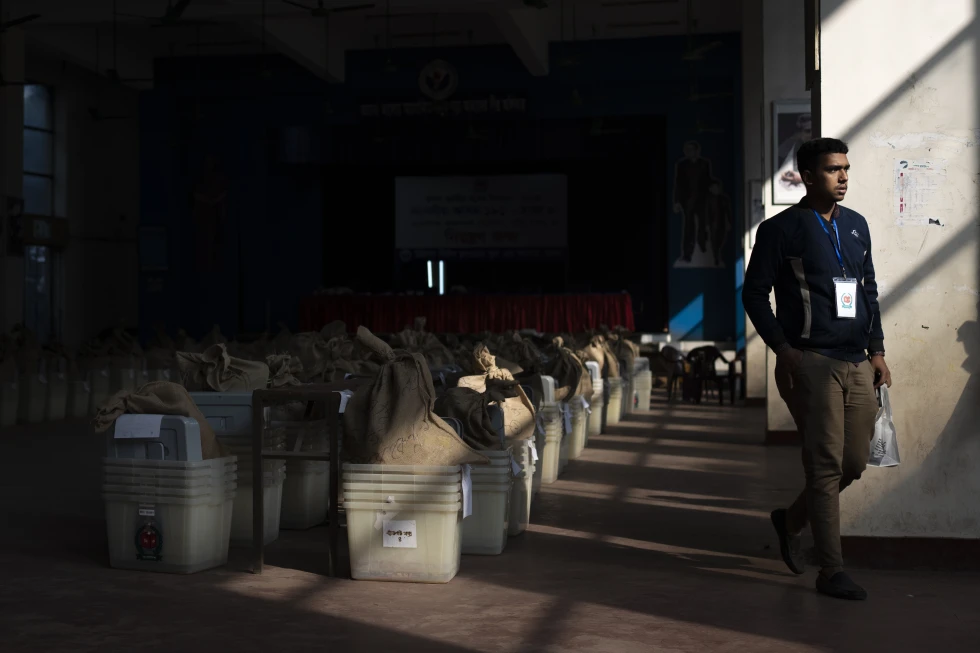Voters in Bangladesh began casting their ballots Sunday as polls opened in an election fraught with violence and a boycott from the main opposition party, paving the way for Prime Minister Sheikh Hasina and her Awami League to seize a fourth consecutive term.
Authorities said at least 18 arson attacks were reported across the country since late Friday, with 10 of them targeting polling places. Four people died Friday in an arson attack on a passenger train heading toward the capital, Dhaka. The incidents have intensified tensions ahead of the parliamentary elections that the opposition Bangladesh Nationalist Party and its allied groups said they would shun.
Campaigning in the South Asian nation of 169 million has been marred with violence as at least 15 people have been killed in recent months. Hostilities reached a boiling point in late October, after a massive rally in Dhaka by the BNP saw clashes with police.
As the election neared, authorities blamed much of the violence on the BNP, who they accuse of seeking to sabotage the election. On Saturday, detectives arrested seven men belonging to the BNP and its youth wing for their alleged involvement in the passenger train attack. The opposition party denied any role in the incident, and say they are being blamed by authorities who want to discredit their “peaceful and nonviolent movement.”
On Sunday morning, Hasina and her daughter voted amid tight security at Dhaka City College, as other citizens lined up outside to cast their ballot.
Voting will last 8 hours across the country for some 119 million eligible citizens to vote in over 42,000 stations. Polling will be held in 299 constituencies out of 300, as the election in one constituency was postponed after an independent candidate died of natural causes. About 700,000 security officials have been deployed to guard the polls and more than 120 foreign observers have arrived to monitor the vote, according to the Election Commission.
For months, the main opposition BNP says they have no faith that a democratic and free election can take place under the 76-year-old Hasina and have demanded the vote be administered by a neutral caretaker government. The government has rejected the demand.
They accuse her government of widespread vote-rigging in the previous 2018 election, which authorities have denied. That election followed another contentious vote in 2014, which was boycotted by the BNP and its allies.
Critics and rights groups have called the election a farce, and questioned the legitimacy of the polls if there are no major challengers to take on Hasina.
The government has defended the election, saying 27 parties and 404 independent candidates are participating. But with scores of those independent candidates from the Awami League itself, and mostly smaller opposition parties in the race, analysts say the result is near inevitable.
The vote has also been called into question by accusations of a sweeping crackdown against the BNP, led by former premier Khaleda Zia, who is ailing and under house arrest over corruption charges. The party says thousands of their members were rounded up and jailed ahead of the vote on trumped-up charges, but the government disputed the figures and denied that arrests were made due to political leanings.

